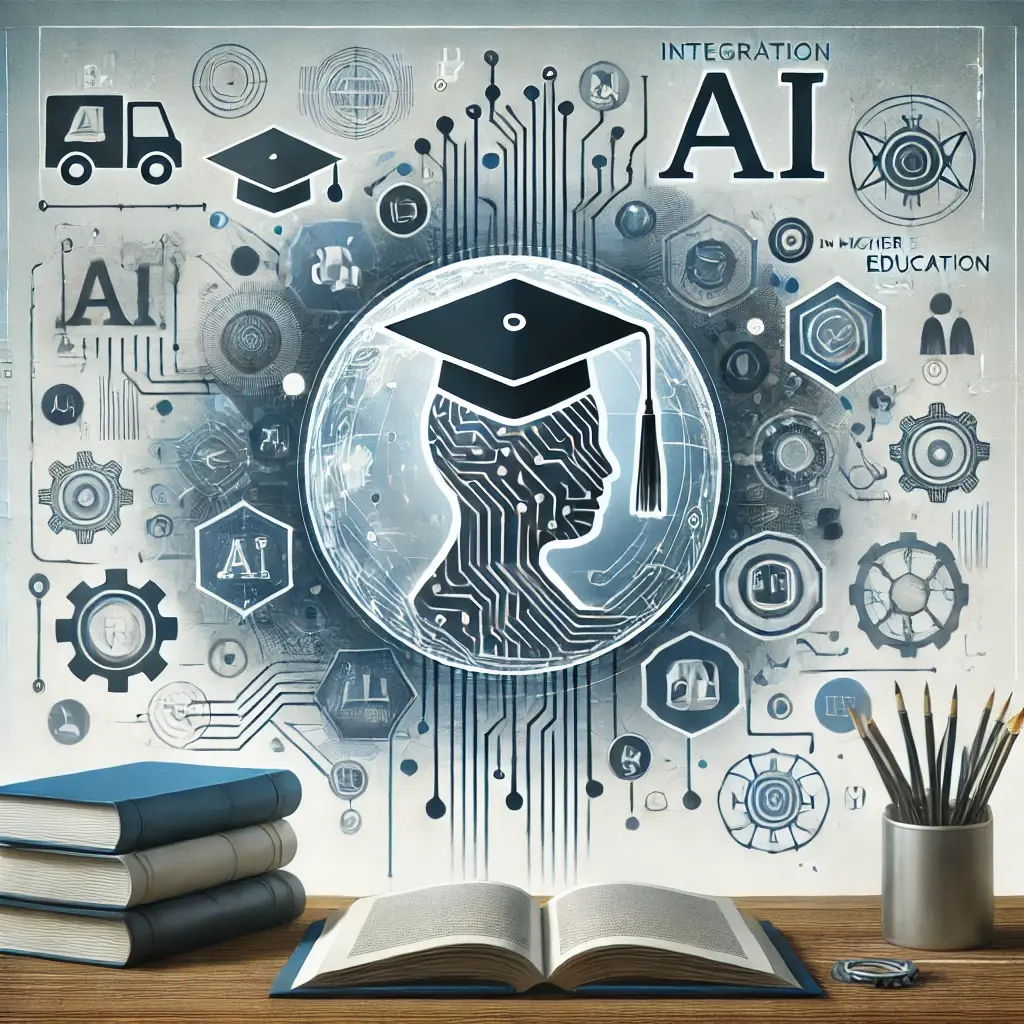
Are you ready for Artificial Intelligence to change the way you teach, research, and assess? A February, 2024 study from Cenage and Bay View Analytics reported that while 81% of faculty predict AI having at least a moderate impact on higher education, less than a quarter feel that their institution is prepared for what that may bring. If you're among those educators who don't feel prepared, fear not, our primer on AI in Higher Ed is here to help.
What is AI?
Artificial Intelligence (AI) refers to the simulation of human intelligence in machines programmed to think, learn, and problem-solve like humans. This technology encompasses various subfields, such as machine learning, natural language processing, robotics, and computer vision. In the context of higher education, AI systems can analyze large datasets, recognize patterns, and make decisions or predictions based on this analysis.
How is AI Used in Higher Education?
AI is employed in multiple ways to enhance the learning experience, streamline administrative tasks, and support educators. Here are some notable applications:
-
Personalized Learning: AI-driven platforms can tailor educational content to meet individual student needs. By analyzing data on student performance, AI can identify strengths and weaknesses, offering customized resources and recommendations to improve learning outcomes. For example, adaptive learning systems adjust the difficulty of tasks based on a student’s progress, ensuring optimal challenge and support.
-
Administrative Efficiency: AI can automate repetitive administrative tasks, such as scheduling, grading, and managing student records. This automation frees up valuable time for educators to focus on teaching and mentoring. AI chatbots, for instance, can handle common inquiries from students, providing instant responses and support.
-
Enhanced Engagement: AI-powered tools, like virtual tutors and interactive simulations, make learning more engaging and interactive. These tools can provide immediate feedback, helping students to understand complex concepts more easily. For instance, AI-driven discussion platforms can facilitate more dynamic and inclusive classroom interactions.
-
Academic Integrity: AI systems are increasingly used to detect plagiarism and cheating. Advanced algorithms can compare student submissions against vast databases of academic work to identify similarities and potential instances of academic dishonesty. This helps maintain the integrity of the educational process.
What Problems Does AI Create?
While AI offers numerous benefits, it also introduces several challenges and ethical concerns in higher education:
-
Bias and Fairness: AI systems can inadvertently perpetuate biases present in the data they are trained on. This can lead to unfair treatment of certain groups of students. For instance, if an AI system used for admissions decisions is trained on historical data reflecting past biases, it may continue to favor applicants from certain backgrounds over others.
-
Privacy Concerns: The extensive data collection required for AI systems to function effectively raises significant privacy issues. Ensuring that student data is collected, stored, and used responsibly is crucial to prevent misuse and protect student privacy.
-
Dependence on Technology: Over-reliance on AI tools may reduce the emphasis on critical thinking and problem-solving skills that are essential in higher education. There is a risk that students may become passive recipients of information rather than active learners.
-
Job Displacement: The automation of administrative and some educational tasks could potentially lead to job losses for support staff and educators. It is essential to consider how to balance the adoption of AI with the need to maintain employment opportunities within educational institutions.
Future of AI in Higher Education
The future of AI in higher education looks promising, with potential advancements expected to further transform the academic landscape:
-
Advanced Personalization: AI could enable even more precise personalization of the learning experience. Future systems might integrate data from various sources, including social media and extracurricular activities, to provide a holistic view of a student’s learning needs and preferences.
-
Predictive Analytics: AI could be used to predict student outcomes and identify those at risk of falling behind. By analyzing patterns in student data, AI systems can provide early warnings and suggest interventions to support struggling students before issues escalate.
-
Virtual Reality (VR) and Augmented Reality (AR): Combined with AI, VR and AR technologies could create immersive learning environments that enhance understanding and retention of complex subjects. For example, medical students could use VR simulations to practice surgical procedures in a risk-free environment.
-
Global Collaboration: AI could facilitate greater collaboration between institutions worldwide. By breaking down language barriers through real-time translation and providing platforms for joint research and learning, AI can help create a more interconnected global educational community.
-
Lifelong Learning: As the job market continues to evolve, the demand for continuous education and upskilling will grow. AI can support lifelong learning by offering flexible, personalized learning paths that adapt to an individual’s career progression and learning needs.
In conclusion, AI has the potential to revolutionize higher education, offering personalized learning experiences, improving administrative efficiency, and fostering greater engagement. However, it is crucial to address the associated challenges to ensure that the integration of AI in education is equitable, ethical, and enhances the overall quality of learning.